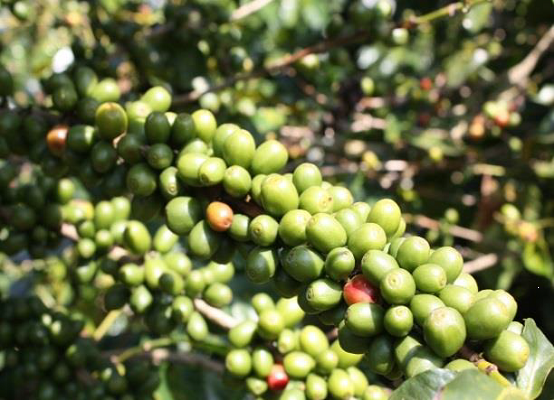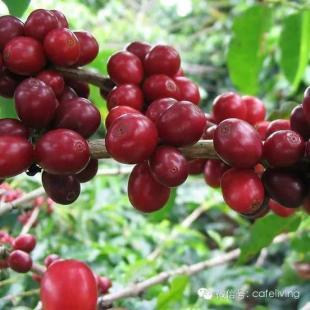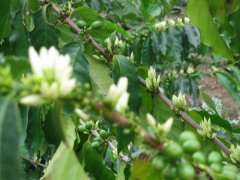El Salvador-Rainforest certified Unoka Manor Coffee Bean roasting advice, Flavor description
For professional baristas, please follow the coffee workshop (Wechat official account cafe_style)

El Salvador-UNICAP Capitales Manor Bean Rainforest Alliance (RFA) Certification
The coffee produced in El Salvador has attracted worldwide attention in recent years, which is the result of close cooperation between small coffee farmers and international coffee organizations (groups) that help improve farming and handling methods. The main hope is to increase the personal income of farmers to further improve the quality of life in their homes and communities, so that coffee farmers have incentives to change the way of planting to restore the original natural ecology of nature. The quality of coffee is gradually improving, making consumers willing to accept the coffee produced in El Salvador to combine consumption patterns with natural ecology, which is the most perfect agricultural production and marketing behavior.
El Salvador is the smallest and most densely populated country in Central America. Nowadays, the main agricultural products in most regions have become coffee beans. We can see the influence of coffee on El Salvador. Coffee is mostly a traditional bourbon tree species. Its derived varieties are yellow bourbon, orange bourbon, cherry bourbon and so on. In the coffee market, which requires that every coffee farm should be unique. El Salvador has also caught up with the trend of special treatment or variety differences, making the previously well-known differences in coffee beans more and more different, and finding more and more interesting and strange coffees. however, Salvadoran coffee has always been loved by people for its thick fragrance, sweet brown sugar honey and stable and gentle taste.
The main purpose of solarization or honey treatment, which is popular in Central America in recent years, is to make coffee beans a little more complex and a little more varied to increase the richness and hierarchy. This time we buy the UNICAP Capitales estate in El Salvador, which is located in a rainforest reserve above 1200 meters above sea level. Is a coffee farm certified by the Rainforest Alliance (RFA) and a member of the Salvadoran Women's Coffee Cooperative. The main purpose of the coffee farm joining the Women's Coffee Cooperative is to protect the environment by fermenting the coffee with the least amount of water and leaving some of the same mucous membrane on the surface of the raw coffee as the honey treatment, which has the same complexity and concentration as honey-treated coffee. This is a great result of new concepts and practices.

Shallow roasting City (fragrance): at this roasting degree, there is a strong tomato fruit aroma, sweet maltose sugar, Central American honey treatment coffee shallow roasting characteristics of meticulous ripe fermented citrus acid and rich and complex taste, which is different from the general Salvadoran coffee.
Medium roasting (general B): when the coffee is ground, it exudes the aroma of banana pineapple tropical fruit, the acidity is fine and weak, and the roasting degree in the mouth is the most complete and round, with the cool finish of mint chocolate.
Re-baking (general C): the aroma of cocoa chocolate is bright when re-baked, the sweetness of brown sugar is the most attractive place of re-baking, the taste is mellow and round, and the finish is the sweetness of sugar water.
El UNICAP Capitales chateau beans with yellowish brown coffee and a little honey film on the surface of raw beans.
It has the same bean appearance as Costa Rican honey-treated coffee.
Important Notice :
前街咖啡 FrontStreet Coffee has moved to new addredd:
FrontStreet Coffee Address: 315,Donghua East Road,GuangZhou
Tel:020 38364473
- Prev

Costa Rica-La Amistad Manor Coffee Flavor description and Baking suggestion
For the exchange of professional baristas, please pay attention to the coffee workshop (Wechat official account cafe_style) Costa Rica-La Amistad Manor beans Costa Rica produces coffee of the most stable quality in Central American countries, because Costa Rican coffee grows in a suitable climate and good shading conditions, coupled with fertile soil and stable middle and rear treatment, plus organized.
- Next

Introduction of coffee hand brewing parameters, temperature, degree of grinding and ratio of powder to water in Queen Manor, Brazil
For the exchange of professional baristas, please follow the coffee workshop (Wechat official account cafe_style) Brazilian coffee, there are many kinds of Brazilian coffee, like other Arabica coffee, most Brazilian coffee is not washed but dried, they are classified according to the name of the country of origin and the port of transport. Brazil has 21 states and 17 states produce coffee, but five of them produce the most coffee.
Related
- Does Rose Summer choose Blue, Green or Red? Detailed explanation of Rose Summer Coffee plots and Classification in Panamanian Jade Manor
- What is the difference between the origin, producing area, processing plant, cooperative and manor of coffee beans?
- How fine does the espresso powder fit? how to grind the espresso?
- Sca coffee roasting degree color card coffee roasting degree 8 roasting color values what do you mean?
- The practice of lattes: how to make lattes at home
- Introduction to Indonesian Fine Coffee beans-- Java Coffee producing area of Indonesian Arabica Coffee
- How much will the flavor of light and medium roasted rose summer be expressed? What baking level is rose summer suitable for?
- Introduction to the characteristics of washing, sun-drying or wet-planing coffee commonly used in Mantenin, Indonesia
- Price characteristics of Arabica Coffee Bean Starbucks introduction to Manning Coffee Bean Taste producing area Variety Manor
- What is the authentic Yega flavor? What are the flavor characteristics of the really excellent Yejasuffi coffee beans?

